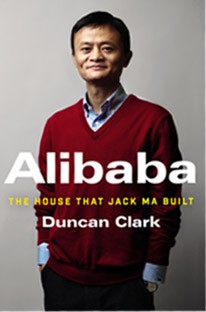
A few days ago I posted a first round of questions-and-answers with Duncan Clark, a longtime analyst of and participant in China’s high-tech economy, and author of the new bookAlibaba: the House that Jack Ma Built. Duncan is also a friend of my wife’s and mine, from the years we lived in China.
He’s back for a second round of followups. I’m posting these mainly because I think the answers are interesting and illuminating in their own right. I encourage you to read very carefully what Duncan Clark is saying about the strengths and weaknesses of the Chinese innovation model. But I also think they’re useful in giving a sample of the logic and approach he uses in his book. Here we go:
Question 1: In our first round, you pointed out that the familiar description, "Company X is the Chinese version of Company Y in America," implicitly devalues Company X. If we say "Baidu is the Chinese version of Google," we inescapably suggest that it's a knock-off of someone else's “real” innovation, which has to limp along in a more constrained environment, etc.
I mainly agree with your observation. So to take it seriously, let's look at Jack Ma's Alibaba as an original creation, and not as “the Chinese version of Amazon” or whatever half-accurate description you often see in the Western press.
Suppose Westerners read your book, studied what Jack Ma has done, and wanted to come up with “an American version of Alibaba.” Or suppose the Jack Ma story were taught at Stanford or Harvard Business Schools, with your book as the text.
What would an "American [or European] version of Alibaba" look like?